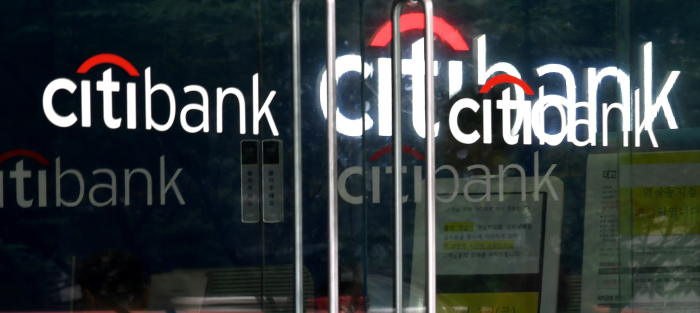Citibank Korea to shut down retail business in phases
High-cost structure and limited growth potential hindered the sale of consumer banking business
By Oct 25, 2021 (Gmt+09:00)
LG Chem to sell water filter business to Glenwood PE for $692 million


Kyobo Life poised to buy Japan’s SBI Group-owned savings bank


KT&G eyes overseas M&A after rejecting activist fund's offer


StockX in merger talks with Naver’s online reseller Kream


Mirae Asset to be named Korea Post’s core real estate fund operator



Citibank Korea has decided to close its consumer banking operations in phases, the bank said on Monday, after its attempt to find a buyer of the business fell through. It is now folding up the retail business in less than two decades, following in the footsteps of HSBC, which pulled out of the country's retail market in 2013.
Under the phaseout scheme, Citibank Korea will discontinue selling new retail products and gradually scale back operations with the implementation of early retirement programs. It did not provide a timeline of the phased liquidation.
It entered the country's consumer banking market in 2004 by acquiring then KorAm Bank from a consortium of the Carlyle Group and JPMorgan for $2.7 billion. The following year, Standard Chartered made inroads into the market by acquiring then Korea First Bank for $3.3 billion.
"At a board meeting on Oct. 22, we decided to shut down our entire consumer banking business in phases," Citibank Korea said on its website, adding that its retail customers will be advised to transfer to other financial services firms until the bank liquidates its business.
On Apr. 15, Citigroup Chief Executive Jane Fraser said that the US banking giant intended to pull out of 13 countries, mostly in Asia, saying: "We don’t have the scale we need to compete (in those countries)."
Since the announcement, the US banking group entered into talks with a number of domestic financial services companies to sell its Korean retail business. But its high-cost structure and the limited growth potential of domestic retail banking cooled interest.
By comparison, Standard Chartered runs 200 retail branches across South Korea as of end-2020, versus 253 at end-2015.
On top of the accelerating digitalization amid the contactless trend, the rise of big tech firms is putting pressure on traditional lenders. Banks in South Korea are also struggling with higher levels of regulatory meddling, including a crackdown on household loan growth, and stagnant or falling non-interest income.
Last year, Citibank Korea's net profit tumbled by 39% to 187.8 billion won, compared with two years before. In particular, its consumer banking has shrunk to one-fifth its 2018 levels, with the segment's earnings plummeting to 14.8 billion won versus 72 billion won in the same period.
Write to Nan-sae Bin at binthere@hankyung.com
Yeonhee Kim edited this article.
-

-

-
 Business liquidationCitibank alludes to S.Korean retail business closure
Business liquidationCitibank alludes to S.Korean retail business closureJun 04, 2021 (Gmt+09:00)
2 Min read


